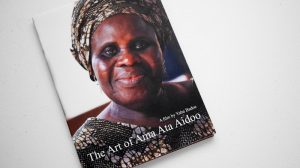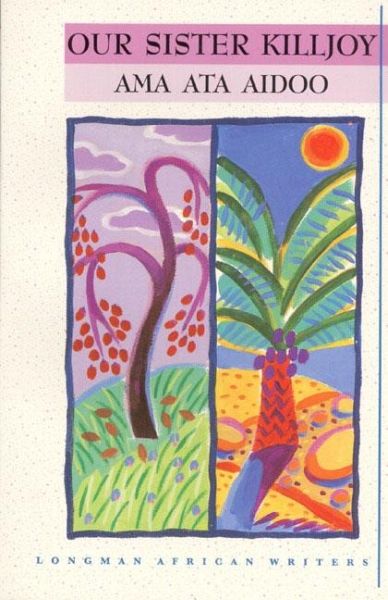
Her protagonists seem to be very bold, independent which reveal the strength of women. She is also featuring her protagonists accordingly, Anowa, Sissie and Esi are different from each other. These three literary pieces deal with women issue from different perspectives.

These three literary works are: Anowa (1970), Our Sister Killjoy or Reflections from a Black-Eyed Squint (1977) and Changes: A Love Story (1991). The narrative is divided into four parts: Into a Bad Dream, The Plums, From Our Sister Killjoy, and A Love Letter. In the present paper three of her popular literary pieces are taken into account to study the issues related to women of Africa especially of Ghana. Our Sister Killjoy is composed of both prose and verse, centered around Sissie, a student from Ghana who travels to Europe for a glorified European education.

She has a great contribution towards the literary field. During her reign several provisions for Girls' Education were implemented in Ghana. Ama Ata Aidoo, the former Education Minister of Ghana and an excellent academician has fought for the rights of the women of her native land. Feminists like Mary Wollstonecraft, Margaret Fuller, Virginia Woolf and many more thinkers forwarded a lot of different perspectives related to feminism. The feminist thinkers struggled a lot for making the simple and innocent women of the society aware about this and they always are trying to solve several issues related to women. There is no definite definition of feminism. Sammy, who has spent a long time in Europe and who speaks “their language well” (9), tells Our Sister that she is very lucky to have.The term 'feminism' basically stands for the rights and equality of women. Our Sister recalls the dinner she had at the ambassador’s home, along with the First Secretary and another African man named Sammy.

The narrator describes the journey that “Our Sister” (8) takes from her home to Europe. The narrator also criticizes “academic-pseudo-intellectual” (6) who universalize these claims. The narrator then criticizes moderates who defends interests that are not theirs and who only repeat their bosses’ teachings, such as “The need for law and order” and “The sanctity of the U.N. towards their dazzling conclusions…” (3-4). In "Into a Bad Dream," the novel opens with a critique of a sentence divided into three pages and separated by a series of ellipticals, beginning with “Things are working out….


 0 kommentar(er)
0 kommentar(er)
